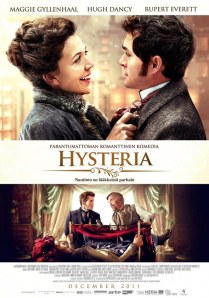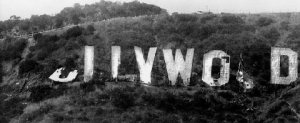Newtopia Magazine
// About Newtopia: a definition
n – a cultural review that examines how our politics and policies are
reflected in our arts, government, and humanities. v – an experimental
form of thought mutation and cross-breeding, providing a unconventional
forum for a range of detailed and informed socio-political opinion and
analysis. adj – words or ideas used for the development of new
possibilities, theories, and solutions for a better world. Often
confused with the word idealistic.
Mongrel Patriot Review: Producer and Writer Kenneth Atchity

A dreamer who realizes his dreams and helps others do the same, Ken Atchity has impressive credits in the worlds of film, television and publishing. His long list of academic achievements and awards include a Fulbright Professorship of American Literature at the University of Bologna, the Faculty Achievement Award at Occidental College, grants from the National Endowment for the Humanities, Mellon Awards, and he was consultant on classical drama for the Mark Taper Forum. He’s published over a dozen books, everything from academic studies of Homeric literature to essential self help for writers. He edited the Classical Roman Reader and Classical Greek Reader for Oxford University Press.
Ken left academia to create a series of hybrid ventures that on the one hand develop inexperienced talent and on the other make deals for major projects in the boardrooms of studios and networks. He has developed a flock of writers, at first shepherding them to book publishers, now guiding their entry into the wild world of e-books. He’s also produced TV and feature films, one starring Angelina Jolie, and indie films, including Hysteria the hit of the Toronto Film Festival in 2011. His documentary The Kennedy Detail (2011) was nominated for a daytime Emmy.
Ken serves on the board of directors of Yogagivesback.org whose mission is “to mobilize the global yoga community to empower women in India to build sustainable livelihoods,” which is awesome. Kayoko Mitsumatsu, a Japanese documentary director, understood the power of micro-loans after producing a doc about Dr. Muhammad Yunus, founder of the Grameen Bank and creator of the micro-loans culture. Having gained so much from yoga herself, Kayoko found a way for yoga students to return some good karma to India. Mothers and children can be given the resources to lift themselves out of poverty for the cost of a yoga lesson.
I recently caught up with Atchity to discuss his projects.
Your new thriller the Messiah Matrix is based on your research, which has led you to believe that the origin of the Roman Catholic Church can be found in the cult of Augustus. You point out the numerous similarities in timeline and beliefs between the cult of the first emperor and the Jesus mythology, including titles Augustus had that included Christ, and savior. You propose that Augustus convened the great minds of Rome to gather together the greatest myths of history up to that point to create a paradigm of the perfect human. How did that Roman ideal become wed to the rabbi hanging out with hookers and lepers?
The novel suggests that the cult of Iasius actually began in Judea, launched by King Herod in gratitude for Augustus sparing his life after he made the mistake of siding with Antony against Augustus. As a Judean cult, it gathered local details before being spread throughout the empire by the emperor himself. I always thought the parallels between the history of Caesar and the myth of Jesus were uncanny, and in this story I found a way to challenge the reader to examine them for himself through the eyes of the characters.

Why is Augustus Caesar the central historical figure of The Messiah Matrix?
Augustus Caesar was the most powerful ruler in the history of Rome, and perhaps the most powerful ruler in the history of the Western World. His Pax Romana, the two hundred years of peace he established throughout his empire after taming the entire periphery of the Mediterranean, which the Romans referred to as mare nostrum, “our lake,” remains unrivalled in world history. Known in his monuments through the empire as “savior,” “father,” “the mighty God,” “God and son of God,” “shepherd,” and “prince of peace,” he was all-powerful and exerted vast, pervasive influence throughout his Empire, an influence that remains with us to this day. His shrewd policies concerning religious tolerance, celebrated by the construction of the Pantheon in Rome, initially led him to allow continuance of the religions of the nations he conquered. He eventually realized that a multi religious empire would lead to civil unrest and violence so he took measures to create a single religion based on individuals honoring the God within us all that he believed would engender peace among the nations.
Will Christian readers anything new about the roots of Christianity in The Messiah Matrix?
The book is written for anyone, like myself, who’s ever wondered about the historicity of Jesus and who’s been troubled by the numerous contradictions found in the Gospels. If you’ve been inspired by the core teachings of Christianity but wondered if the figurines in the Christmas nativity set are based on actual fact or are instead mythic icons this novel was meant for you and will give you plenty to think about. The literalists seem to feel that Jesus being “mythic” instead of actually historical is somehow demeaning to the Christian founder—when the very opposite is true. Nothing is more powerful than myth, which is a public dream that endures through the ages. The true history of Christianity has been shrouded in mystery for millennia, partly intentionally and partly out of ignorance. The Messiah Matrix reveals crucial structural and conceptual aspects concerning the roots of Christianity, clouded by history through the ages that will change the reader’s understanding, possibly forever. But it should not in any way be a detriment to believing in the essential doctrines of redemption and transformation that is the seminal essence of Christian—and indeed almost every—religious faith. The challenge is stripping away the layers of organized religion to find that essence.
Swami Vivekananda wrote of a dream he had when a ship he was on passed Cyprus, an Essene told him: “This is the island where Jesus was invented.” Whether historical or invented, from the most superstitious to the sublime, he haunts every walk of life. What is it we’re after with this Jesus mystery that has so fascinated humans?
We’re after the enormous transformative potential that lies within each of us as human beings—to overcome our beastly nature and transcend it to the level of our angelic (divine) aspirations. That is the true meaning of ‘the christ,’ symbolized by the fish image described in the novel.
You have an unusually optimistic view of current events, which you compare to the great Jesuit scholar Pierre Teilhard de Chardin’s concept of “the Omega Point.” Please share with our readers this idea that we’re living at the Omega Point right now.
As I said in a recent Huffington Post, we are nearing the point of full communication among humans, which will make us ‘ubiquitous in time’ and nearly all-powerful (since governments and religions will no longer have the power to deceive us about events—someone THERE with a cell phone will transmit proceedings to the world before the press and propaganda have had a chance to spin them). All knowledge will be shared, as it is in Wikipedia; all images will be accessible. The very idea of living in TRUTH will begin to bring out our better nature as a species and eventually vanquish the evil within us. Call me crazy, but I think that’s what’s going on right now thanks to the worldwide web. One of the final hurdles is overcoming our addiction to organized religion, which blinds us to the responsibility for our own destiny, which is the essence of evolved humanity.
In 2011 you were one of the producers of Hysteria, an English comedy about the invention of the vibrator as a medical apparatus to deal with Victorian women in a culture where the female orgasm was usually dismissed as the province of prostitutes. The film ran into the difficult film distribution market. it didn’t comfortably any genres, it’s not a good date movie, guy movie, buddy comedy, kid movie or horror movie. What surprised you about who liked the film and who didn’t?
I’m never surprised when a great little film doesn’t reach its audience. In this case it was a combination of factors—the star being unavailable for publicity when the film was released, and the distributor being preoccupied with Woody Allen’s “Midnight in Paris” (which I loved, by the way, as a former professor of comparative literature). I believe the film will find its audience eventually thrown downloads and DVDs, and during the award season. I’m disappointed but I take a long view of the work I’m involved with—if it’s good, it will eventually be ‘discovered.’ I certainly see that happening with The Messiah Matrix, which I believe is one of the three best books I’ve written, along with my first Homer’s Iliad: The Shield of Memory and A Writer’s Time.
In 2010 you were involved in the production of The Kennedy Detail. The film became notorious among JFK assassination conspiracy experts because it supports the lone assassin theory and even throws cold water on the rumored affair with Marilyn Monroe. What do you think of America’s fascination with conspiracy theories?
I think our fascination is perfectly understandable. It’s so much easier to believe that a pivotal world figure like JFK is assassinated through a vast conspiracy than through the machinations of a single maniac like Lee Harvey Oswald. Living is the constant working of an enormous jigsaw puzzle and nothing is more frustrating than believing that there are certain pieces that we may never find—and therefore never be able to complete the puzzle. So every possible piece—the mob, Castro, the CIA, the Russians, even the Secret Service itself—becomes a candidate for solving this great unsolved mystery. The film hopes to throw light on this process of constant assembling and reassembling that is our human nature.
You’ve had many years of experience in the film industry and have been in involved as a producer in the production of over thirty movies. How has the business changed? Care to predict the future of the movie biz?
If I worship anything in life I worship change, and the divinity within it—the very spark of life. And change is what’s been happening in spades for the last five years to the point where both publishing and entertainment (not to mention, as you well know, MUSIC) are changing so rapidly no one can say at the moment exactly what’s going on. But one thing is clear on the film side: this is, and will be, for the next few years at least, the ‘age of the independent.’ Because the studios have retrenched down to making a handful of films each (instead of 20-30) each year—and those with massive budgets, over $150 million), the explosion of moviemaking has been in the indie world where I spend most of my film time. What this means for the writer is that he must find a way to become a PRODUCER, raising the money or attaching the talent needed to move his story to the front of the conveyor built. I predict that writers who become producers will govern the future of the indie renaissance.
As many years of experience as you’ve had with film you have even more as an expert on publishing. How do you feel about the future of publishing? Is there a place for corporate publishers in tomorrow’s world of writers or are eBooks and direct author to reader relationships the new book business?
I’ve never been so excited about the future of publishing as I have been for the past 2-3 years when it’s become crystal clear that the sea change is underway. We’re living in a time as exciting as the last decade of the fifteenth century when Gutenberg’s invention of the printing press changed the world’s access to knowledge virtually overnight. That is what the Internet is doing for publishing. For storytellers in particular—and I believe we can change the world through stories—this is the first time in centuries that we have direct access to a worldwide audience. Traditional corporate publishers may continue for another fifty or a hundred years but they will become even more focused on “established brands,” the authors whose names are household words because the cost of their overhead demands they publish books that are “pre-sold.” But for the new voices and new ideas direct publishing, via e- and print-book both, find their way to their markets without interference from the gatekeepers of old. What could be more exciting than that?
In Homer’s Iliad: The Shield of Memory you showed how the ancient bards provided cultural retrospection and a moral compass by telling the story of the wrath of Achilles and the consequences of breaking the laws of hospitality of Zeus. Now we’re in a world where misinformation is everywhere. So-called facts are countered by other so-called facts, all cherry picked to support economic, and political and religious agendas. I personally believe that the laws of Zeus still apply; I see the results of its successes and failures every day, do you?
Yes, it is dizzying to hear, in clip after clip, politicians quoting facts against the “lies” of their opponents. But the good news is that we all have access to Google, and we can all research the facts ourselves and decide whom to believe. The future of culture depends on the intelligence of the computer-accessing individual. Stories still change the world. I knew that in Messiah Matrix I had a better chance of saying what I wanted to say about the ravages of organized religion if I described the theory as part of an exciting story than as a nonfiction study. My book on Homer sold a few hundred copies in the past 40 years! So its description of how culture is transmitted through storytelling went unheeded by the widest audiences. In fact, I moved from the academic world to the world of commerce precisely because the new world I’ve worked in for 25 years now is all about reaching the widest audiences. In a novel we recreate the experience of the campfire, where people gather around to hear a story and discuss what to make of it. The Internet is that campfire, with the after-postings the chatter of the gathered. The laws of Zeus allow us to gather and comment and respond to the poster and one another. How exciting is that!
From 1980-1988 you were editor of DreamWorks: An Interdisciplinary Quarterly about the relationship between dreams and the arts. Contributors included Ursula LeGuin, Ingmar Bergman, Fellini, Paul Bowles, William S. Burroughs, John Gardner, Carlos Fuentes, Stephen King and Eugène Ionesco. How do your dreams influence you and your work today?
I am living my dreams, and have been since I left the academic world twenty-five years ago. So many projects I’m involved with originated with a dream—whether a daydream or a night dream—and I’ve realized that the more dreams I facilitate the more facility I have in generating them. They just keep coming, waking or asleep—and the thrilling thing for me is that I get to assist in making the dreams of others come true. That’s been my life mission: helping stories change the world by getting them to their audiences.

44 young girls who are funded now
by YGB’s “Sister Aid” programs to stay in school as well as receiving
out of school supplementary tutoring.
What is going on at the moment is that Kayoko Mitsumatsu, head of YGB and my dear wife, is in India for three weeks to document (she’s a filmmaker) the results of YGB’s support to the women and children in the villages, and is reporting back daily (see yogagivesback.org) that the program has become so popular that one wall in a rural community depicts children walking around with bags bearing the “Yoga Gives Back” logo. Again, she has taken her story—“For the price of a lesson, you can change a life”–to its target audience and is witnessing the transformation that yoga practitioners’ support can achieve in these lives.
In 1995 you wrote a little gem called Cajun Household Wisdom. Since this interview will be live just after an election that has deeply divided America, can you offer a Cajun saying for our political predicament?
Don’t get into a pissing contest with a skunk. Seriously, whatever the outcome, President Obama represents the future of America as the dream of the melting pot come true. We are living in historical times, to have seen him be elected. We are finally reaching the potential represented by the Statue of Liberty. This remains, truly, the land of freedom and opportunity.
Written by Tamra Spivey
Newtopia staff writer TAMRA SPIVEY
is a founding member and primary singer of Lucid Nation, executive
producer of the documentaries Rap is War and Exile Nation, and associate
producer of The Gits documentary. She was art editor and west coast
editor of Newtopia Magazine in its former
incarnation, collaborating on in depth interviews with whistle blower
Michael Ruppert, ACLU and record business honcho Danny
Goldberg, and grassroots political strategist Larry Tramutola. Follow
her on twitter @MongrelPatriot.




No comments:
Post a Comment